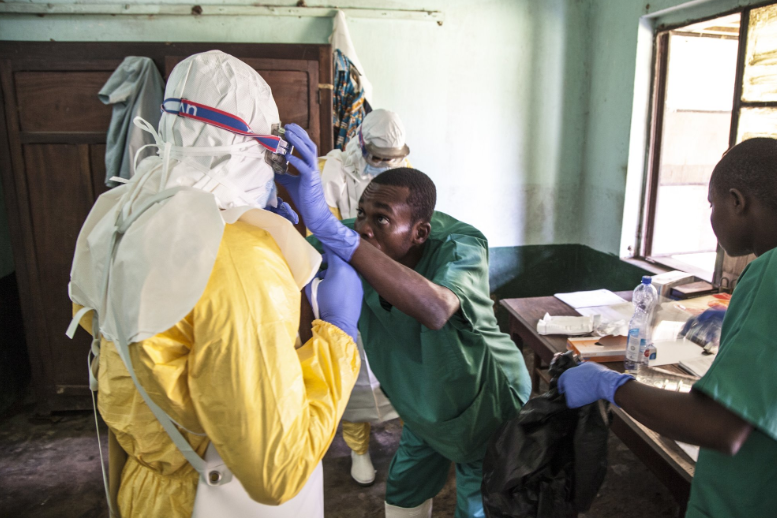
Health workers don protective clothing as they prepare to attend to patients in the isolation ward to diagnose and treat suspected Ebola patients, at Bikoro Hospital in Bikoro, the rural area where the Ebola outbreak was announced last week, in Congo on May 13, 2018. Congo's latest Ebola outbreak has now spread to Mbandaka, a city of more than 1 million people, a worrying shift as the deadly virus risks traveling more easily in densely populated areas. (Photo: AP)
NAIROBI (Xinhua) -- The World Health Organization (WHO) on Sunday urged African countries to fast-track the realization of universal health coverage that is key to reducing the continent's growing burden of infectious and non-communicable diseases.
Expanding access to quality and affordable healthcare services will promote sustainable development in the world's second largest continent, WHO Regional Director for Africa Moeti Matshidiso said in a statement released in Nairobi ahead of World Health Day.
"Progress towards health-related and broader development goals can only be possible by providing access to essential quality care and protection from financial hardships to everyone," Moeti said.
"In Africa, the recurrence of major public health events means that there can be no health security without universal health coverage," she said.
The theme of this year's World Health Day is "Universal Health Coverage." It seeks to emphasize the critical role of timely, quality and affordable treatment as a means to reducing negative impact of diseases on livelihoods.
The WHO is committed to ensuring that 1 billion people globally benefit from quality health services and financial protection by 2023 in line with health-related sustainable development goals, Moeti said.
Political goodwill, adequate financing, availability of trained and motivated workforce as well as quality medicine is key to attaining the goal of universal health coverage in Africa, she said.
The WHO, in its 2018 state of health report for the African region, identified under-investments in health infrastructure, personnel and commodities as major constraints to the realization of universal health coverage.
The global health body is encouraging African countries to revamp policy and legislative frameworks to stimulate investments in supportive infrastructure required to achieve universal health coverage, Moeti said.
In addition to policy realignment, African countries can also harness the youth bulge and digital tools to boost their capacity to deliver affordable and quality healthcare services to all citizens, she said.


